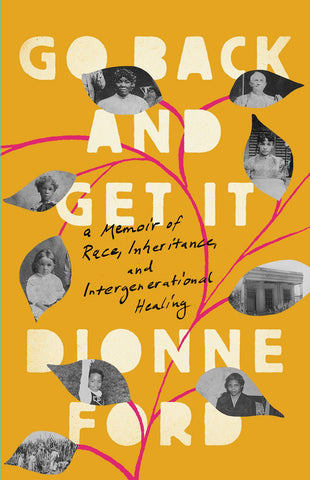An unexpected family photograph leads Dionne Ford to uncover the stories of her enslaved female ancestors, reclaim their power, and begin to heal
Countless Black Americans descended from slavery are related to the enslavers who bought and sold their ancestors. Among them is Dionne Ford, whose great grandmother was the last of six children born to a Louisiana cotton broker and the enslaved woman he received as a wedding gift.
What shapes does this kind of intergenerational trauma take? In these pages, which move between her inner life and deep research, Ford tells us. It manifests as alcoholism and post-traumatic stress; it finds echoes in her own experience of sexual abuse at the hands of a relative, and in the ways in which she builds her own interracial family.
To heal, Ford tries a wide range of therapies, lifestyle changes, and recovery meetings. “Anything,” she writes, “to keep from going back there.” But what she learns is that she needs to go back there, to return to her female ancestors, and unearth what she can about them to start to feel whole.

